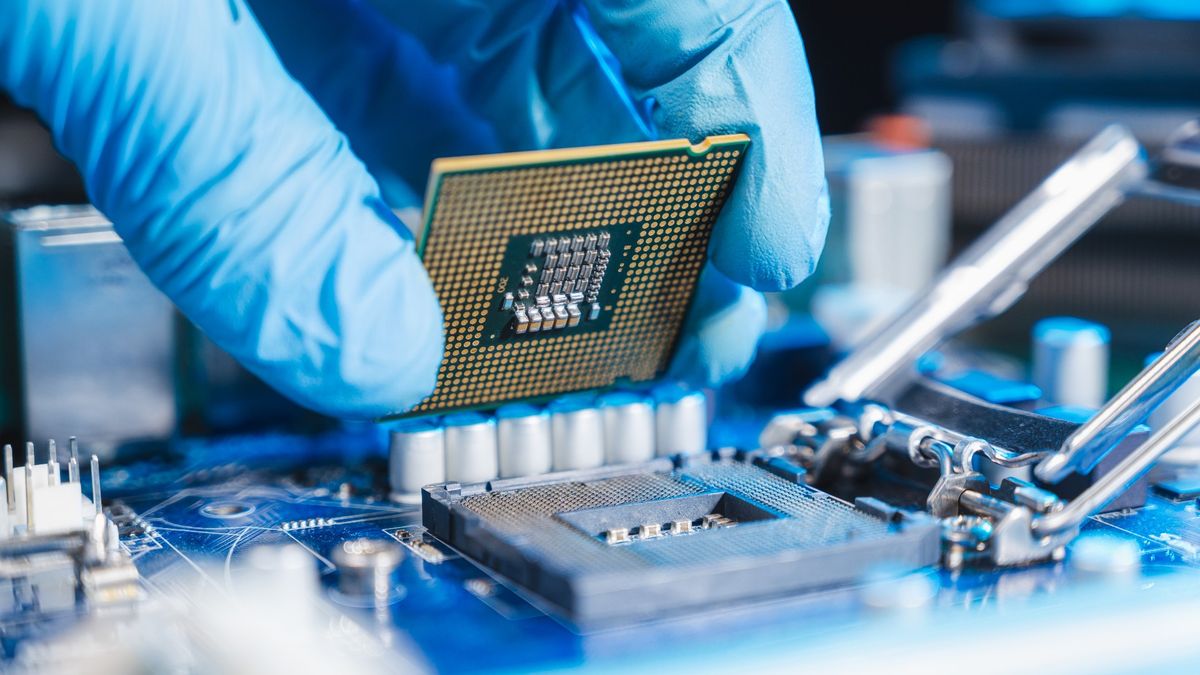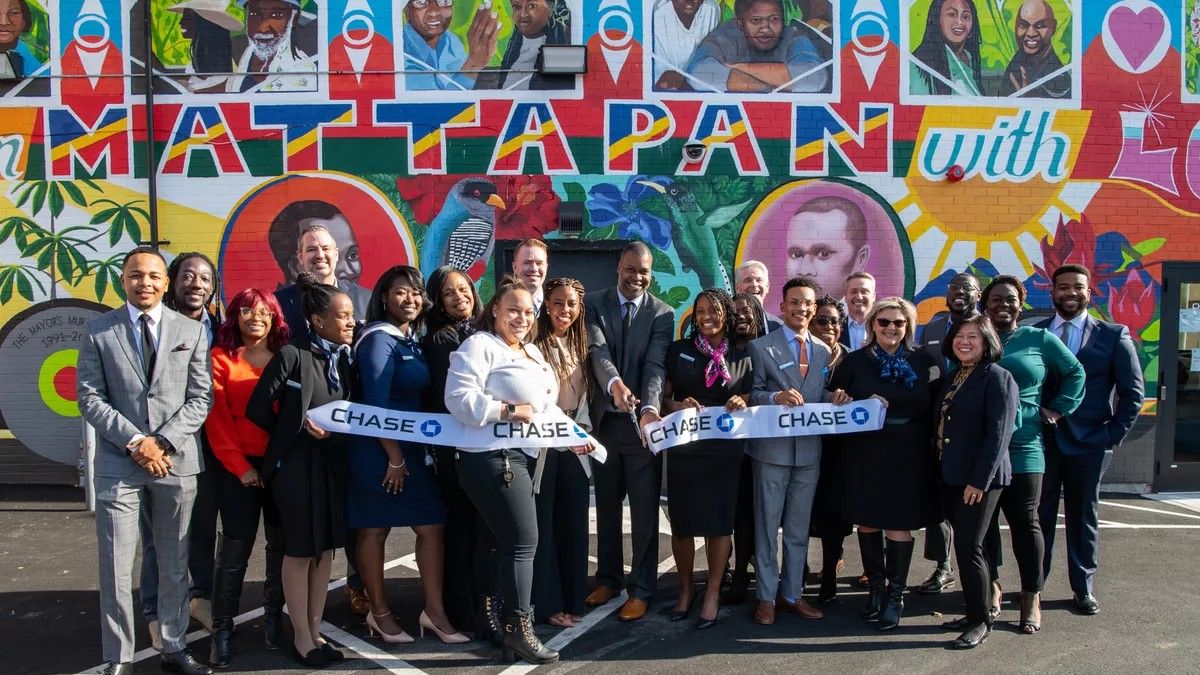| JPMorgan Chase Chairman and CEO Jamie Dimon released his annual letter to shareholders today.His letter outlines the complexity of navigating current geopolitical events — and their impact on society and the global economy.He also discusses how to maintain America's competitiveness, address both energy security and climate change, and create an inclusive economy."We are facing challenges at every turn: a pandemic, unprecedented government actions, a strong recovery after a sharp and deep global recession, a highly polarized U.S. election, mounting inflation, a war in Ukraine and dramatic economic sanctions against Russia," Jamie says."During this difficult time, we have a moment to put aside our differences, offer solutions and work with others in the Western world to come together in defense of democracy and essential freedoms." | | | | Jamie Dimon's Annual Letter | | JPMorgan Chase Chairman and CEO Jamie Dimon released his annual letter to shareholders today. -
His letter outlines the complexity of navigating current geopolitical events — and their impact on society and the global economy. -
He also discusses how to maintain America's competitiveness, address both energy security and climate change, and create an inclusive economy. "We are facing challenges at every turn: a pandemic, unprecedented government actions, a strong recovery after a sharp and deep global recession, a highly polarized U.S. election, mounting inflation, a war in Ukraine and dramatic economic sanctions against Russia," Jamie says. | | | 1. How to keep the U.S. competitive |  | | Building semiconductors and 5G networks at home is essential for U.S. competitiveness and national security. | | We've seen America come together and work with other countries during previous crises and conflicts. With a war in Ukraine, inflation and supply chain disruptions, this has to be one of those times. Jamie's letter outlines his ideas to make that a reality. We need: -
A more equitable labor market that maximizes employment and values all jobs, effective and continuous job training for workers of all ages, and practices that better promote sharing the wealth — such as higher minimum wages and an increased Earned Income Tax Credit. -
A new strategic economic and competitive framework with our allies that includes trade and industrial policies to support national security priorities like semiconductors and 5G. -
Well-functioning, healthy social safety nets. -
A "Marshall Plan" to ensure energy security, which can be done while reducing CO2 emissions and combatting climate change. -
Regulations and policies that foster growth but don't cripple business innovation and investment. -
The strongest military in the world — continually maintained, though used judiciously and in conjunction with our allies. -
The world's most prosperous economy, which also means having the world's reserve currency. -
A strong America that respects all its citizens, helps the disadvantaged, honors the dignity of work, and demonstrates character and civility. "Free enterprise, rugged individualism and entrepreneurship are not incompatible with meaningful safety nets and the desire to lift up our disadvantaged citizens," says Jamie. | | | 2. Leadership in a tumultuous world |  | | The Western world must maintain its unity to help restore the global order. | | America and the world are facing three important, conflicting forces that will impact the economy and geopolitics for the next several decades: -
A strong U.S. economy, which hopefully has COVID-19 in its rearview mirror. -
High inflation, which means rising interest rates and, importantly, the reversal of quantitative easing. -
The war in Ukraine and the accompanying humanitarian crisis. The war in Ukraine and sanctions have roiled global oil, commodity and agricultural markets. But the war is also having another dramatic and important result: bringing the world's democracies together. It reminds us that in a troubled world, national security always becomes the paramount concern. JPMorgan Chase is "working hand in hand with governments to implement complex policies and directives, and then some," says Jamie. | | | 3. A "Marshall Plan" for sustainability and energy security |  | | The future of energy needs to be secure, reliable, affordable and low-carbon. | | Despite the growth in well-intended climate pledges from governments and companies, the world is well short of meeting its net zero emissions goals by 2050. -
The war in Ukraine and sanctions on Russia are also driving gas prices up and threatening Europe's access to natural gas. -
Resource scarcity leads to higher energy costs and reduces reliability, hindering national security and hurting the most vulnerable. Disruptions to the global energy system are again highlighting our urgent global need to provide energy resources securely, reliably and affordably. These objectives are not mutually exclusive. We can — and must — do both. We need a "Marshall Plan" to ensure energy security, which can be done while reducing CO2 emissions and combatting climate change. This includes: -
Promoting energy security by directing more capital toward less carbon-intensive fuel sources and helping companies invest in technologies like carbon capture. -
Scaling clean tech investments like clean hydrogen to achieve net zero emissions. -
Thoughtful policies that spur long-term, low-carbon solutions that create jobs and benefit the global economy. -
Meaningful goals and tangible solutions to reduce emissions today. To help advance climate action, we: -
Established the Center for Carbon Transition, centralizing client access to financing, advisory and research solutions to help them make the low-carbon transition and thrive. -
Created a target to finance and facilitate $1 trillion by 2030 for climate action and initiatives like renewable energy, green buildings and electric vehicles. We've also set a 2030 target to reduce the carbon intensity of our financing portfolio, starting with oil & gas, electric power and automotive manufacturing — with more to come. | | | 4. Our shift from Community Banking to Community Building |  | | One of our newest Community Center branches has opened in Mattapan, Boston. | | Banking plays an essential role in communities — bringing people together, enabling companies and individuals to reach their financial dreams and being a source of strength in difficult times. "Simply put, our country has done a bad job of looking out for and creating opportunity for everyone," says Jamie. "Companies of all sizes need to show up, listen, and make the right investments and decisions to earn a neighborhood's trust." As part of our $30 billion Racial Equity Commitment, we're launching Community Center branches across the country to provide banking resources and financial tools to Black, Hispanic and Latino communities. -
We've opened 12 new branches in communities from Los Angeles to New York, and from New Orleans to Minneapolis. -
We expect to have 17 branches in underserved communities by the end of the year, expanding to Atlanta, Baltimore, Miami, Philadelphia and Tulsa. -
These branches are unique spaces for neighborhoods — minority contractors built most of them, and local artists designed and decorated them to resonate with the community. We know that to be sustainable, this effort has to get results. We're shifting from "community banking" to "community building" and it's an important evolution in serving communities where it is long overdue. | | | Closing thought from Jamie: | |  | | To learn more, please visit JPMorganChase.com | | If you received this email from a friend, subscribe now to receive future updates. | | To unsubscribe, please click here. | | © 2022 JPMorgan Chase & Co. | 383 Madison Avenue, New York, New York | |
Comments
Post a Comment